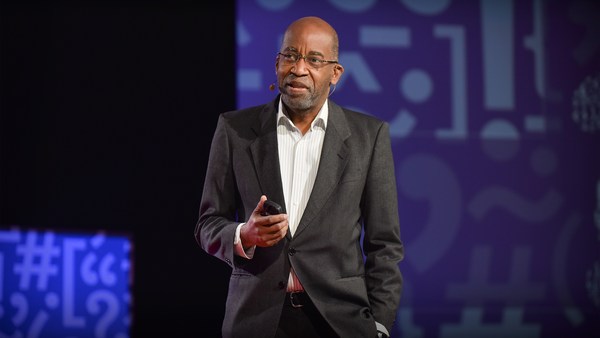15 years ago, I volunteered to participate in a research study that involved a genetic test. When I arrived at the clinic to be tested, I was handed a questionnaire. One of the very first questions asked me to check a box for my race: White, black, Asian, or Native American.
I wasn't quite sure how to answer the question. Was it aimed at measuring the diversity of research participants' social backgrounds? In that case, I would answer with my social identity, and check the box for "black." But what if the researchers were interested in investigating some association between ancestry and the risk for certain genetic traits? In that case, wouldn't they want to know something about my ancestry, which is just as much European as African? And how could they make scientific findings about my genes if I put down my social identity as a black woman? After all, I consider myself a black woman with a white father rather than a white woman with a black mother entirely for social reasons. Which racial identity I check has nothing to do with my genes. Well, despite the obvious importance of this question to the study's scientific validity, I was told, "Don't worry about it, just put down however you identify yourself." So I check "black," but I had no confidence in the results of a study that treated a critical variable so unscientifically.
That personal experience with the use of race in genetic testing got me thinking: Where else in medicine is race used to make false biological predictions?
Well, I found out that race runs deeply throughout all of medical practice. It shapes physicians' diagnoses, measurements, treatments, prescriptions, even the very definition of diseases. And the more I found out, the more disturbed I became.
Sociologists like me have long explained that race is a social construction. When we identify people as black, white, Asian, Native American, Latina, we're referring to social groupings with made up demarcations that have changed over time and vary around the world. As a legal scholar, I've also studied how lawmakers, not biologists, have invented the legal definitions of races.
And it's not just the view of social scientists. You remember when the map of the human genome was unveiled at a White House ceremony in June 2000? President Bill Clinton famously declared, "I believe one of the great truths to emerge from this triumphant expedition inside the human genome is that in genetic terms, human beings, regardless of race, are more than 99.9 percent the same." And he might have added that that less than one percent of genetic difference doesn't fall into racial boxes.
Francis Collins, who led the Human Genome Project and now heads NIH, echoed President Clinton. "I am happy that today, the only race we're talking about is the human race."
Doctors are supposed to practice evidence-based medicine, and they're increasingly called to join the genomic revolution. But their habit of treating patients by race lags far behind.
Take the estimate of glomerular filtration rate, or GFR. Doctors routinely interpret GFR, this important indicator of kidney function, by race. As you can see in this lab test, the exact same creatinine level, the concentration in the blood of the patient, automatically produces a different GFR estimate depending on whether or not the patient is African-American. Why?
I've been told it's based on an assumption that African-Americans have more muscle mass than people of other races. But what sense does it make for a doctor to automatically assume I have more muscle mass than that female bodybuilder? Wouldn't it be far more accurate and evidence-based to determine the muscle mass of individual patients just by looking at them?
Well, doctors tell me they're using race as a shortcut. It's a crude but convenient proxy for more important factors, like muscle mass, enzyme level, genetic traits they just don't have time to look for. But race is a bad proxy. In many cases, race adds no relevant information at all. It's just a distraction. But race also tends to overwhelm the clinical measures. It blinds doctors to patients' symptoms, family illnesses, their history, their own illnesses they might have -- all more evidence-based than the patient's race. Race can't substitute for these important clinical measures without sacrificing patient well-being.
Doctors also tell me race is just one of many factors they take into account, but there are numerous medical tests, like the GFR, that use race categorically to treat black, white, Asian patients differently just because of their race.
Race medicine also leaves patients of color especially vulnerable to harmful biases and stereotypes. Black and Latino patients are twice as likely to receive no pain medication as whites for the same painful long bone fractures because of stereotypes that black and brown people feel less pain, exaggerate their pain, and are predisposed to drug addiction.
The Food and Drug Administration has even approved a race-specific medicine. It's a pill called BiDil to treat heart failure in self-identified African-American patients. A cardiologist developed this drug without regard to race or genetics, but it became convenient for commercial reasons to market the drug to black patients. The FDA then allowed the company, the drug company, to test the efficacy in a clinical trial that only included African-American subjects. It speculated that race stood in as a proxy for some unknown genetic factor that affects heart disease or response to drugs. But think about the dangerous message it sent, that black people's bodies are so substandard, a drug tested in them is not guaranteed to work in other patients.
In the end, the drug company's marketing scheme failed. For one thing, black patients were understandably wary of using a drug just for black people. One elderly black woman stood up in a community meeting and shouted, "Give me what the white people are taking!"
(Laughter)
And if you find race-specific medicine surprising, wait until you learn that many doctors in the United States still use an updated version of a diagnostic tool that was developed by a physician during the slavery era, a diagnostic tool that is tightly linked to justifications for slavery.
Dr. Samuel Cartwright graduated from the University of Pennsylvania Medical School. He practiced in the Deep South before the Civil War, and he was a well-known expert on what was then called "Negro medicine." He promoted the racial concept of disease, that people of different races suffer from different diseases and experience common diseases differently. Cartwright argued in the 1850s that slavery was beneficial for black people for medical reasons. He claimed that because black people have lower lung capacity than whites, forced labor was good for them. He wrote in a medical journal, "It is the red vital blood sent to the brain that liberates their minds when under the white man's control, and it is the want of sufficiency of red vital blood that chains their minds to ignorance and barbarism when in freedom." To support this theory, Cartwright helped to perfect a medical device for measuring breathing called the spirometer to show the presumed deficiency in black people's lungs.
Today, doctors still uphold Cartwright's claim the black people as a race have lower lung capacity than white people. Some even use a modern day spirometer that actually has a button labeled "race" so the machine adjusts the measurement for each patient according to his or her race. It's a well-known function called "correcting for race."
The problem with race medicine extends far beyond misdiagnosing patients. Its focus on innate racial differences in disease diverts attention and resources from the social determinants that cause appalling racial gaps in health: lack of access to high-quality medical care; food deserts in poor neighborhoods; exposure to environmental toxins; high rates of incarceration; and experiencing the stress of racial discrimination.
You see, race is not a biological category that naturally produces these health disparities because of genetic difference. Race is a social category that has staggering biological consequences, but because of the impact of social inequality on people's health. Yet race medicine pretends the answer to these gaps in health can be found in a race-specific pill. It's much easier and more lucrative to market a technological fix for these gaps in health than to deal with the structural inequities that produce them.
The reason I'm so passionate about ending race medicine isn't just because it's bad medicine. I'm also on this mission because the way doctors practice medicine continues to promote a false and toxic view of humanity. Despite the many visionary breakthroughs in medicine we've been learning about, there's a failure of imagination when it comes to race. Would you imagine with me, just a moment: What would happen if doctors stopped treating patients by race? Suppose they rejected an 18th-century classification system and incorporated instead the most advanced knowledge of human genetic diversity and unity, that human beings cannot be categorized into biological races? What if, instead of using race as a crude proxy for some more important factor, doctors actually investigated and addressed that more important factor? What if doctors joined the forefront of a movement to end the structural inequities caused by racism, not by genetic difference?
Race medicine is bad medicine, it's poor science and it's a false interpretation of humanity. It is more urgent than ever to finally abandon this backward legacy and to affirm our common humanity by ending the social inequalities that truly divide us.
Thank you.
(Applause)
Thank you. Thanks. Thank you.





